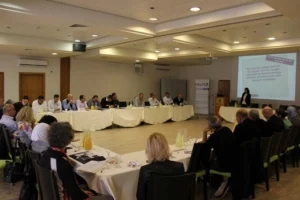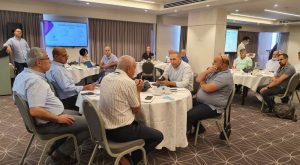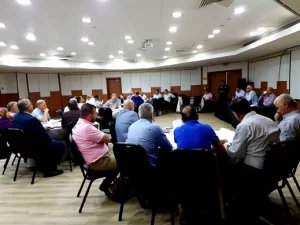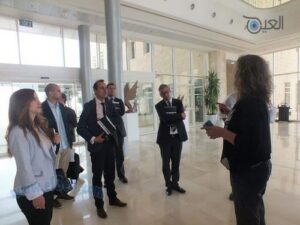Today, Thursday, in the city of Nazareth, a session of the Committee for the Development of Businesses, Initiatives and Organizational Structures for Economic Development, which is one of the professional committees accompanying the work of the Committee of Heads of Local Arab Authorities, was held. The session was held to discuss ways and mechanisms to support and promote Arab small and medium-sized businesses, which are gaining additional importance today due to the consequences of the Covid crisis on the local economy. The committee is managed by the Injaz Center for the development of Arab local authorities, in partnership with the Committee of Heads of Arab local authorities. The session was attended by heads and representatives of Arab local authorities, in addition to representatives of official bodies, economic and professional advisers.
Mr. muder Younis, head of the Committee of Heads of Arab Local Authorities, welcomed the attendees, reviewing the work of the accompanying committees established to strengthen the work of local authorities, and stressed the importance of coming up with specific action plans to discuss with the Ministry of Finance, especially in the wake of the current economic crisis. Ahmed darawsha, the committee facilitator and project manager at Injaz, reviewed the most important objectives of the committee, including developing plans to support small businesses in Arab towns, developing the economic system in Arab local authorities, and developing an action plan to push for the adoption of government policies in line with the demands of the Arab community.
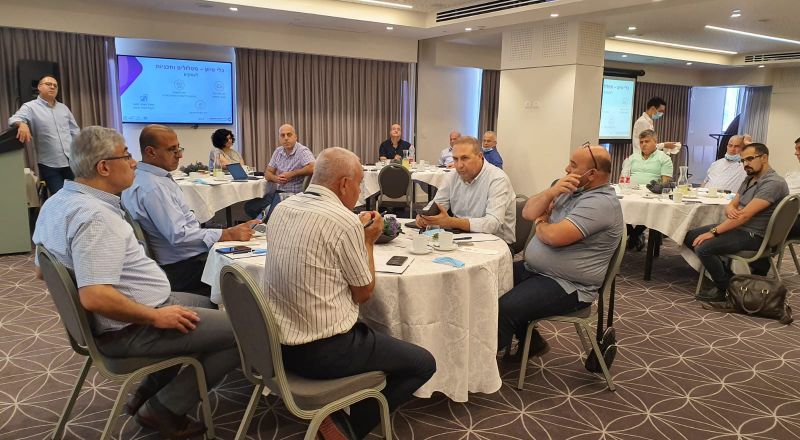
The session dealt with how to develop mechanisms to promote small and medium businesses in order to advance the Arab economy, and reviewed the obstacles that prevent the development of Arab entrepreneurial businesses and initiatives. In addition, the need to survey the needs and develop new economic plans seems necessary and urgent, with the end of the economic plan known as the 922 Plan, and evaluating its results and drawing conclusions from it. The main discussion revolved around the most important mechanisms that local authorities can use to develop Arab businesses, and their role in providing the infrastructure and organizational structures for the prosperity of these interests, which were excluded from Plan 922.
According to the data, 10% of the total businesses in the country belong to Arab ownership, 96% of which are small businesses, which occupy 65% of the total employees in the Arab business sector. It is estimated that Arab businesses have lost about 67% of their income due to the Covid crisis, and there is a fear that 70 thousand businesses nationwide will close due to the crisis, and Arab businesses constitute about 40% of the businesses expected to shut down.


